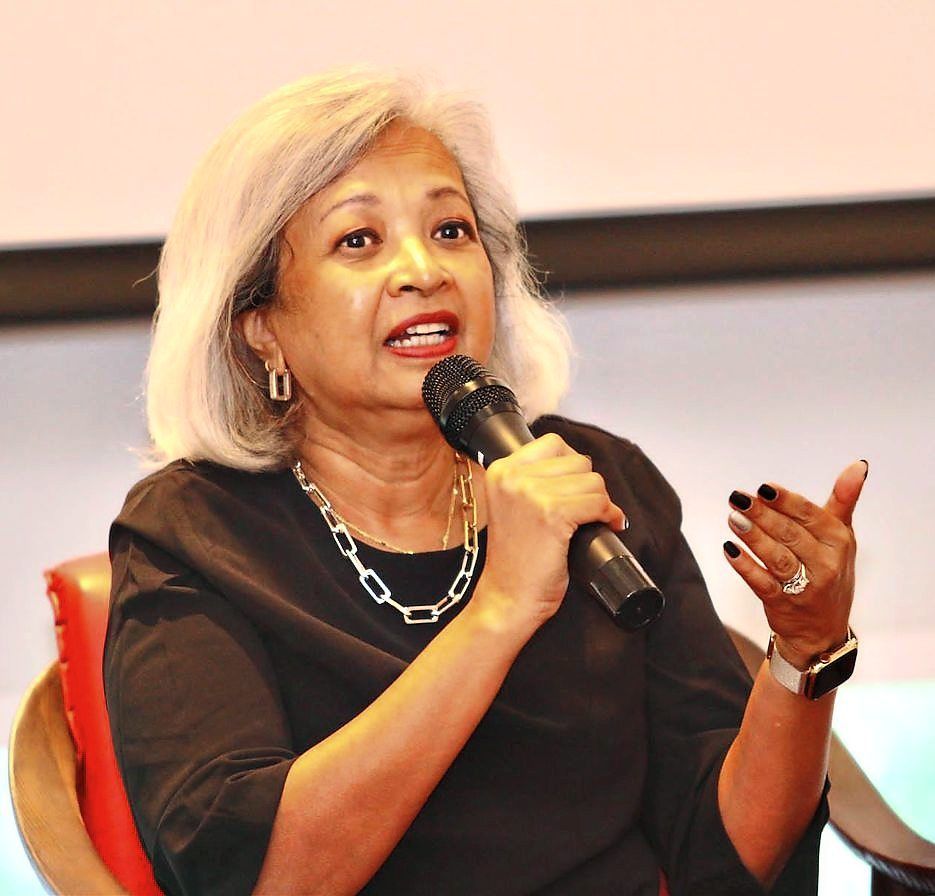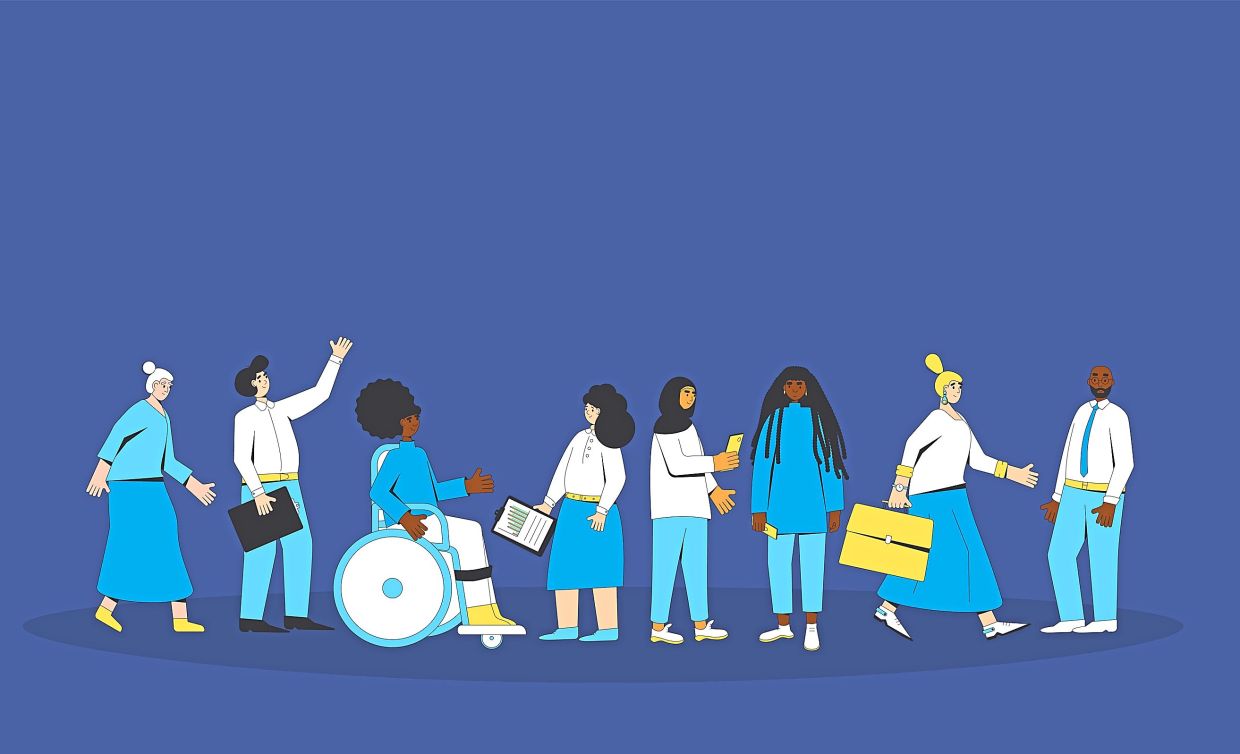(from left) Panalists JJ Fernandez, Marina Mahathir and Dina Cheah-Foong, with moderator Suri Kempe at Seed Malaysia's #NoLabels event.
While the intention of having no labels is good – namely, a society that is diverse and inclusive where everyone is respected as an individual and not placed into boxes – there are some labels that shouldn’t be discarded, says human rights activist Datin Paduka Marina Mahathir.
“Each one of us is made up of many labels, for example, I’m a speaker, ex-president (Malaysian Aids Council), mother, wife, writer, etc,” says Marina.
“Throughout our lifetime, we also move from one label to another. It could also be the progress of time, when people move from being a child to a teenager, an adult, and finally, an elderly person. So that’s not a bad thing,” she adds.
Marina was speaking at the #NoLabels event organised by Seed Malaysia, a community-based organisation for the marginisalised.
With Malaysia being a melting pot of different cultures and beliefs, the movement advocates fair treatment and opportunity for all while eradicating prejudice and discrimination, especially against marginalised and under-represented groups. It also aims to raise awareness on human rights, focusing on equality, diversity and inclusivity issues, says activist Nisha Ayub.
“What comes to my mind as I think of #NoLabels, is Rodney King’s frequently cited quote ‘Can’t we all just get along?’ He was an African American man who was a victim of police brutality,” says Nisha.
“Like the quote, #NoLabels is deceptively simple. In reality, it’s not so easy. The ability to look past particular identity markers that distinguish us from each other such as race, religion, gender orientation, etc. is an aspiration,” she says.
“When we say we don’t look at anyone with any labels, it means we’ve come to a point where we see everyone as an equal. But it’s not just on an individual level. When we say we see each other as equals, it means that equality is reflected in our systems, institutions, laws, social norms and interpersonal relationships,” she adds.
“#NoLabels doesn’t mean closing our eyes and pretending our differences have disappeared because without addressing their root cause – inequity and inequality – these differences will continue to exist and this disproportionately affects the most marginalised among us,” says Nisha.
Radio and TV personality JJ Fernandez, who is formerly of Hitz-FM fame, says while it’s impossible to have no labels, what we do with those labels is important.
“Do we use these labels to separate and exclude, or do we use them to include, such as ‘are you a ‘Harry Potter fan’ – that’s a label, but a positive one,” says Fernandez.
“What I’d like is for labels to be inclusive rather than being used to exclude. When it comes to entertainment, there shouldn’t be stereotypes like ‘the bad guy is this type of person’ or ‘a person who follows a certain way of life is going to end up a certain way’ because when you do that, society tends to see it as the norm,” he says.
To Datin Mina Cheah-Foong, managing director of InNature Berhad which owns The Body Shop franchise, labels are nothing more than an identifier which can be useful in some instances.
“Through labels, we also find our community, tribe and people, whom we can connect with without having to explain our values, our principles or ourselves. But, the negative side is that labels can also segregate, call for differentiation, and there are cases where people are marginalised further,” she says.
Labels can have a very damaging effect, especially when they’re negative.
Fernandez highlights an unhealthy label in the entertainment industry: “All rich celebrities shouldn’t be depressed, they’ve got nothing to be depressed about because they’re rich, good-looking, etc.”
“But the truth is, they’re human just like us. All of us have our struggles. We go through things that we don’t broadcast to the world,” he says.
“And, when talking to somebody, you might think, ‘he or she is really nice’ but behind closed doors, they might be really mean. Conversely, someone who looks stern might be the most friendly or polite. So, don’t label people just because of outer appearances,” he adds.
It depends how you use the labels and also the context in which they are used, says Cheah-Foong.
“I was with a bunch of Brazilians and when they call you ‘grandmother’, it’s a mark of respect. But here in Malaysia, if you call someone a ‘granny’, they would be so upset,” she cites as an example.
“I think labels are ok but not if they’re used in mean or nasty comments,” she says.
Cheah-Foong says that they practise open hiring and they also employ transgenders.
“Open hiring means we don’t do background checks or call up previous employers. Background checks can be discriminatory because if a potential employee has a police record, it doesn’t mean they’re going to continue being a criminal. And if people don’t let them move forward from their past label as a criminal, what’s going to happen? Will they be forced to return to a life of crime if they can’t find any other means of earning a living?” she says.
Cheah-Foong reveals they’re one of the first companies to practise diversity in hiring frontline staff in their workforce.
She adds that it’s society that forms norms and, as all of us are the society, norms can change.
Everyone has their own prejudices – even in simple things such as ordering food or drinks - but if we can find one issue or topic that we all agree on, such as 'violence' is wrong – whether it’s against women, children, transgenders or LGBT individuals – and do something about it, it can become a norm, she says.
Marina highlights that advocacy is necessary in order for positive change to policies and laws to happen.
“Nothing is going to happen unless there is advocacy. We need to be farsighted. It takes years of hard work, courage, patience and perseverance, and it might not happen in our lifetime, but we’ve to start the ball rolling,” she concludes.












